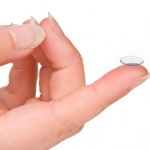How to Take Care of Your Eyes and Contact Lenses During Winter

There’s more to the winter season than simply being the perfect time to wear your scarves, gloves, boots, and thick layers of clothes. Your eyes need all the protection they can get, too. What more if you’re the type of person who wears contact lenses all the time? Don’t worry for we have all the information you need to make sure you won’t struggle with dry, painful eyes as you try to enjoy the snow.
Is it okay to wear contact lenses during winter?
Good news–that’s a total YES! In fact, it’s highly recommended to wear contacts while you’re doing winter sports or activities if you have a vision problem. That way, you’ll be able to move freely on the snow.
Even when the temperature outside is freezing cold, it’s still okay to wear your lenses. As long as they’re staying on your eyes, you’ll be fine. That’s because your cornea, as well as your tears, naturally emit a little bit of heat. The natural warmth of your eyes will keep your contacts from freezing.
What about if your contacts turn hard as ice due to improper storage? There’s still no reason to worry. You’re still allowed to wear them after letting them thaw inside their storage case at room temperature. The recommended duration is overnight to make sure your lenses are completely thawed.
If you want to speed up the process, there’s nothing you can do. Heat can easily affect the chemical composition of any contact lens solution.
After the thawing process, you can’t just put the contacts on your eyes right away. To keep your lenses safe from even a tiny drop of water, wash them with a saline solution straight from the bottle.
Once you’ll notice discomfort while wearing the previously frozen contacts, remove them immediately. It’s always bad news to wear damaged lenses.
Which type of contact lens is ideal for winter?
Dry eye syndrome is the most common consequence of exposing your eyes to the cool winter air. Surprisingly, another risk is sunburn. It turns out that ultraviolet rays are still a threat even when snow is all around.
With those problems in mind, it’s clear that you need contact lenses with properties that can combat the effects of dry wind and UV rays from the sun. Luckily for you, soft UV-protection lenses exist.
The crucial factor, however, is the softness of your contacts. Soft lenses are made by materials that can retain water and let oxygen penetrate your eyes. Sufficient moisture and oxygen are guaranteed to be effective at preventing pain from dryness.
If you’re willing to spend a bit more money for foolproof results, experts are recommending silicone hydrogel lenses. They have minimal wetness to give way to a higher level of oxygen transmission. Besides, too much moisture can also be bad since having excessively teary eyes is never a good thing.
Don’t just settle for a good pair of contacts for the season. You must also look for an eye drop that can moisturize your eyes for hours. Even highly moisturized lenses tend to eventually dry out due to cold temperatures. So, always bring an eye drop with you wherever you go.
Check this article:
Get to know all contact lenses types
Winter Eye Care and Lens Maintenance Tips
Now that you’ve understood the importance of protecting your eyes from freezing temperatures, check out the following sets of tips for different needs or situations:
UV Protection
- Wear goggles or sunglasses that can absorb 99% of UV rays even when you’re wearing contacts.
- Goggles are a must for winter sports, but make sure to choose the right kind since there are a lot of variations out there.
- If you like wearing winter hats, at least choose the ones with a brim that can shield your eyes from the sun.
- If you don’t have a winter hat with a wide brim, you may use baseball caps. However, put an actual winter hat under the cap to protect your head from the cold.
Lounging at Home
- Moisturize indoor air by using a humidifier.
- Be careful about the size of the humidifier you’re going to use. Too small for the room, and you won’t feel the effects. Too big, and you’re going to have breathing problems due to excessive moisture.
- Winter lasts for months, so see to it that your humidifier’s filter is cleaned properly from time to time.
- Check the quality of your heater’s filter as well to prevent allergic reactions.
- Make it a habit to clean rooms regularly even when it’s winter season to eliminate allergens caused by a thoroughly sealed home.
- Install an air filter if the risk of allergens in your area is too high.
- If your eyes are starting to get itchy, simply use drops.
- When you get bored, control the urge to stay outside for a long time. In fact, limit the frequency of your snowy escapades to avoid exposing your eyes to the UV rays reflected onto the snow-white grounds.
Diet
- Eat omega-3 foods like pecans, walnuts, and flaxseed as often as possible. Omega-3 is known for enhancing the production of human tears, which can obviously stop your eyes from getting dry.
- Drink more water even if you’re not thirsty.
- Have a hot bowl of soup every now and then.
- Stop drinking alcohol, sodas, and sweet beverages for they can speed up the loss of moisture from your eyes or contacts.
Conclusion
Taking care of your eyes and contacts during winter involves a lot of moisture retention, UV protection, and proper storage. Wear soft lenses and use the right eye drops. For UV protection, don’t just wear contacts; put on a nice pair of sunglasses or goggles, too. Lastly, store your lenses at room temperature at all times.
Where to Buy Contact Lenses for Dry Eyes and UV Protection
Look no further for here at Contact Lenses 4 Us, we have Acuvue products that can protect your eyes from dryness and UV rays at the same time. Order now to buy Johnson and Johnson lenses such as Oasys with Transitions, Oasys 1-Day with HydraLuxe, or 1-Day Moist even if you don’t have a prescription.
See also:
- Can I wear contact lenses for swimming and other activities?
- How to Take Care of Your Eyes in Summer: 10 Tips for Eye Care
- Can Sleeping With Contacts On Hurt Your Eyes?
- What Are Lenses Made Of?

Air Optix Night and Day (3)
Air Optix Night & Day 3 contact lenses per box Sick and tired of the delicate cycle of inserting, removing, cleaning, and sto...
Learn how to care for our contacts all year!






